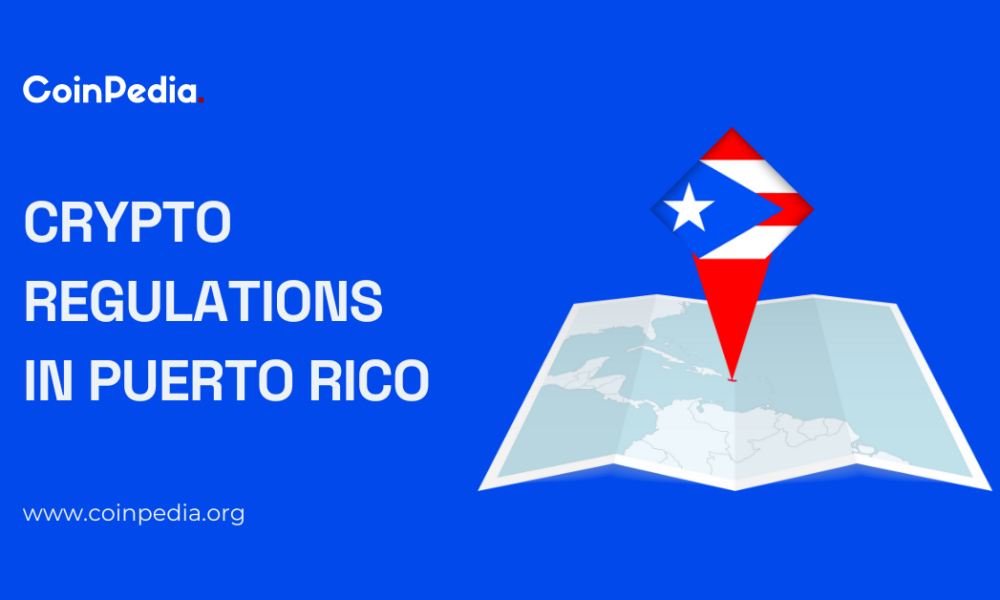Regulation
Cryptocurrency Regulations in Puerto Rico 2024

Puerto Rico is a beautiful Caribbean island. It is an unincorporated territory of the United States. It is home to approximately 3.2 million people. The capital of the island is San Juan. The island is developed by Caribbean standards, but it is the poorest city in the United States. Although Puerto Ricans have been U.S. citizens since 1917, a significant portion of the island’s population currently lives below the U.S. standard poverty line. The island has a mixed economy, dominated by manufacturing. The service sector also plays a significant role, but agriculture plays a very minimal role in the economy. In recent years, the island has become a hotspot for cryptocurrency enthusiasts. Several cryptocurrency entrepreneurs have visited the island. What is inspiring this influx of cryptocurrency enthusiasts is the cryptocurrency-friendly tax laws that the island has established. Act 60 is transforming the cryptocurrency landscape on the island. The ongoing transformation is expected to have a positive impact on the country’s economy. Many see the island’s unique blend of US affiliation and tax benefits as a golden opportunity. In fact, how liberal is the cryptocurrency regulation on this island? It will definitely be better than that of the United States. Really? Not sure? Let’s check it out.
1. Cryptocurrency Regulation in Puerto Rico: An Overview
Cryptocurrency is a hot topic on the island of Puerto Rico. Since 2017, the cryptocurrency sector on the island has been steadily improving, as many cryptocurrency enthusiasts have moved to the island. The main reason for this continuous improvement of the sector is the existence of Law 60, recently established on the island. The crypto community on the island has been growing steadily in recent years. Initiatives to improve the cryptocurrency sector have the support of the local administration, but they are heavily criticized because nothing has been done so far to solve the problem of so-called gentrification.
1.1. Puerto Rico Law No. 60: A Brief Explanation
Bill 60 is actually a strategy by the island to attract investment. This law essentially offers tax incentives to residents. It is an updated or improved version of Bills 20 and 22. The law offers generous benefits like no tax on passive income, such as capital gains and dividends, and low corporate and income tax rates. To benefit from the benefits offered by the law, individuals must live on the island for at least three years. What makes this law extremely attractive to cryptocurrency enthusiasts in the United States is that it offers a unique opportunity to enjoy tax savings while retaining U.S. citizenship.
2. Cryptocurrency Regulation in Puerto Rico: What’s New
July 30, 2023: San Juan Mercantile Bank & Trust International has officially begun operations, offering custody and settlement services for fiat and digital assets. This service integration with the San Juan Mercantile Exchange enhances options for cryptocurrency traders.
July 2, 2024: Robinhood has expanded its cryptocurrency services to include Puerto Rico and the U.S. Virgin Islands.
3. Explanation of the tax framework for cryptocurrencies in Puerto Rico
Puerto Rico is literally a tax haven in every sense of the word. Under Law 60, residents enjoy 0% tax on cryptocurrency income. It doesn’t matter if you are a trader, a crypto staker, or a crypto miner. The source makes no difference in the tax rate you are expected to pay. The only requirement to enjoy these benefits is that you become a bona fide resident of the island. Not only does the island offer an attractive tax environment for individuals, but it also has a business-friendly tax policy. Companies operating on the island only have to pay 4% tax on their income. It is important to note here that only cryptocurrencies acquired and sold while you live on the island are tax-free. What else can a crypto entrepreneur expect from a crypto haven?
4. Cryptocurrency Mining in Puerto Rico: What You Need to Know
Puerto Rico is becoming a hotbed of cryptocurrency mining. What could be the reason? Without a doubt, Act 60 would be the main one. Blockchain activities, such as mining, are subject to a minimum tax of 4%. Companies involved in these areas can benefit from the “export service incentives”. A cryptocurrency miner in Puerto Rico pays much less taxes than a cryptocurrency miner in the American continent. Thus, Puerto Rican cryptocurrency miners have a clear advantage over their counterparts in the American continent. This explains why the island is gradually becoming the most sought-after destination for cryptocurrency mining companies.
5. Timeline of cryptocurrency regulation in Puerto Rico
2012: Puerto Rico introduced Law 20 (Promotion of Export Services) and Law 22 (Relocation of Individual Investors) to attract investment with tax benefits.
2017: The island has gained popularity among cryptocurrency investors, attracted by tax incentives.
2019:Law 60 consolidated previous laws into a single incentive code.
2021: Many cryptocurrency-based businesses and investors have set up shop on the island to take advantage of the favorable tax regime.
Endnote
The phrase “If you’re tired of high taxes in the United States, move to Puerto Rico” is gaining traction, especially among cryptocurrency enthusiasts. Act 60 has been successful in attracting significant investment to the island, fostering the growth of the crypto community. However, it is essential to balance the economic benefits with the interests of local residents, especially issues such as gentrification. The hope is that this influx of investment will lead to economic growth and improve the lives of the island’s residents. If successful, Puerto Rico could become a model for how liberal cryptocurrency regulations can positively impact the economy and community.
